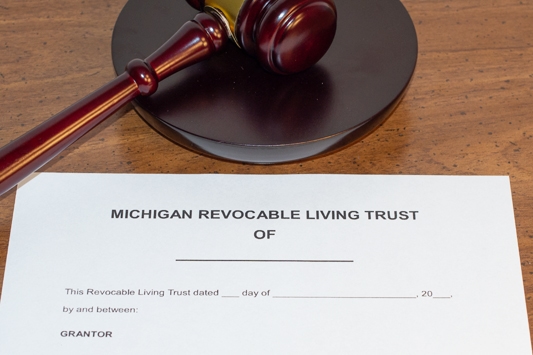Michigan Attorney for Probate & Trust Disputes
Trust litigation involves settling disputes among trustees/beneficiaries of an estate. These disputes can often be complex, emotional, and carry a lot of stress for the individuals and families involved. During this time, it can be difficult to maintain clear thought, let alone, navigate laws specific to trust/probate in Michigan. The litigation of trusts are done through probate court; therefore, if you believe there’s foul play by a trustee, misuse of assets, or any other legal issues involved with a trust it’s important to contact an attorney who’s experienced with both probate as well as Michigan trusts.
Sean J Nichols, PLLC is a highly rated probate law firm that has extensive experience with trust disputes in Michigan. This includes representing beneficiaries with legal disputes as well defending trustees against litigation. If you or a loved are involved in a legal dispute involving trusts, contact our offices today.
Common Reasons For Litigation

Misuse of trust assets – Trusts are generally very difficult to challenge in court. As a result, one of the most common reasons for litigation involves misuse of assets by a trustee.
Undue Influence – Unfortunately, some people have ulterior motives and may behave in a nefarious manner for their own personal gain, even at the expense of a family member/loved one. This may include: tricking an individual through misrepresentation of the document’s contents, pressuring the person, or, in more serious cases, coercing an individual into signing/modifying the trust through the use of threats or by other means. This sad occurrence is commonly referred to as “undue influence” and is subject to trust litigation.
Different beneficiaries – One common reason for trust disputes involves different classifications of beneficiaries within the trust. For example, the spouse of a trustee may be named as a beneficiary to receive the benefits of an estate during life; on the other hand, children from a prior marriage may be named as beneficiaries to receive benefits of the trust after the the spouse passes away. Naturally, this may cause confusion and disagreement among individuals/families.
Investments – Issues may occur when a trustee is pressured into making high risk investments with assets from the trust or make investments that have little-to-no short term income.
The trustee dies – If the trustee of an estate suddenly perishes and there’s no designated successor, the heirs will have to go to probate court and have the judge designate a new individual. This may cause conflict if multiple parties are involved.
The trustee becomes incapacitated – Similar to when a trustee dies, if it’s determined that this individual is incapacitated and can no longer act as a trustee, either the named successor will have to take over duties as the trustee, or court will be required to appoint a trustee.
Unlawfully changing an existing trust – In order to modify a trust, there are specific legal processes required by law. When someone attempts to update the trust without going through the proper process, it may render the entire document invalid and open the possibility of litigation.
Validity/authenticity of the trust – Simply put, if the trust was not properly witnessed, notarized, and signed in accordance with State law, the trust may be open to litigation. On a more controversial note, if the trust was forged, or other foul play is discovered within the document, more serious litigation may occur.
Mental capacity – Similar to reasons for contesting a will, one possible reason for litigation involves mental capacity. That is, when a trust is being drafted, modified, or signed, the individual must have the mental capacity to understand aspects and ramifications of the document. If mental incapacity is determined in court, the document is declared invalid. Mental incapacity may include age related illnesses such as dementia or Alzheimer’s, or other forms of disability/illness. The Michigan Legislature defines an “incapacitated individual” as,
“an individual who is impaired by reason of mental illness, mental deficiency, physical illness or disability, chronic use of drugs, chronic intoxication, or other cause, not including minority, to the extent of lacking sufficient understanding or capacity to make or communicate informed decisions.” (Michigan Legislature, Section 700.1105, 1998)
Trust Litigation Lawyers in Plymouth MI
Our law firm is located in Plymouth, MI and dedicated to serving clients throughout the State. Additionally, our attorneys are experienced with probate and trust litigation cases in several Michigan courts. This includes the Probate Court of Wayne County, Oakland County, and many others throughout the State. Therefore, if you have legal issues pertaining to Michigan trusts, call our offices today. (734) 386-0224
